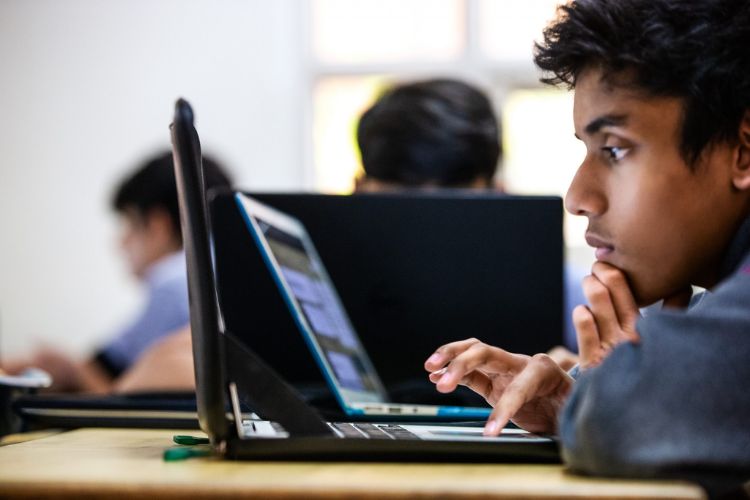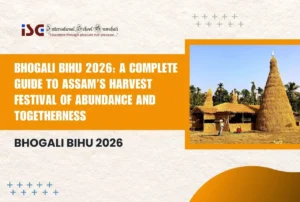People are busy with their work schedules but education is also crucial. Thus, open schooling is picking up speed. The National Institute of Open Schooling (NIOS) is aiding these aspirants a lot. School boards in India and open learning institutions provide individuals with the opportunity to learn at their own speed, offering flexibility and freedom.
The open school system can be advantageous for homeschooled children seeking to take milestone examinations. Wit it they attempt admission into graduate or diploma programs, children pursuing professional sports or other careers, etc.

What is the National Institute of Open Schooling (NIOS)?
The National Institute of Open Schooling (NIOS), often known as NOS (National Open School), is the governing body for open schools in India. Alternatively, one could argue that it is an institution focused on promoting self-directed education.
The Government formed this autonomous open school board in India in 1989. NIOS conducts the secondary and senior secondary examinations of the open school system, which are considered on par with the CBSE and the CISCE exams.
NIOS Syllabus Scheme
Open Basic Education
The Open Basic Education (OBE) program was established in 1994. It was set up as an alternate method of open schooling to offer primary and middle education. This is intended for adult individuals who lack basic literacy skills and are unable to benefit from the conventional education system.
The OBE program is an educational program that offers three levels of study.
- Level A corresponds to the academic curriculum for students in Grades 1 to 3. NIOS offers three primary subjects at the A-Level: Environmental Studies (EVS), Mathematics, and Basic Computer Skills.
- Level B corresponds to the academic level of students in Classes 4 to 5. At the B Level, the National Institute of Open Schooling (NIOS) offers three primary subjects. Namely Environmental Studies (EVS), Mathematics, and Fundamental Computer Skills.
- Level C corresponds to the grade levels of 6 to 8. At the C Level, the National Institute of Open Schooling (NIOS) offers five primary topics, namely English Language, Mathematics, Science, Social Science, and Basic Computer Skills.
Secondary School Education
The NIOS admission to secondary course is deemed to be on par with Class 10. A minimum of five topics, including at least one language, is mandatory for certification. Students must select at least one and at most two languages from Group A, as well as other disciplines from Group B.
Senior Secondary Education
The NIOS senior secondary course is deemed to be on par with the academic standards of Classes 11 and 12.
Within this senior secondary curriculum, students are required to undertake a minimum of five and a maximum of seven topics. Students have the option to select at least one and up to two languages from Group A. They also select other subjects from Groups B, C, D, E, and F. It is based on their personal interests and future career aspirations.
Also Read: Is Online Education Better than Traditional Education?
How is NIOS Fixing the Education Problems in India?

One of the major problems of the Indian education system is unequal accessibility of education. We have to realise that India is home to the largest labour force in the world. Therefore, it becomes hard for this labour force to catch up on their education while working and earning their livelihoods.
Hence, the National Institute of Open Schooling (NIOS) is attempting to eradicate the gap between working and education with its flexible curriculum. There are numerous syllabi that NIOS offers to its aspirants. Hence, almost every option in education is available for even those who cannot join a regular class.
- Young adults have the opportunity to pursue vocational training and academic courses. Even if they are self-employed or working in non-skilled labor positions, they can continue academics.
- Young mothers have the option to pursue their secondary or senior secondary education by engaging in home-based study and attending tutorials as needed and as their responsibilities permit.
- Students in India have the option to approach an open school board if they wish to pursue a specific combination of subjects.
- Young adults have the option to register for either one or two courses simultaneously. They can study at their own convenience, taking into account their personal and professional obligations.
- The open learning institutions cater to individuals with physical and mental disabilities, women, individuals who have dropped out of school, individuals residing in rural and remote locations, as well as pupils who have not passed their 10th or 12th grade examinations.
Also Read: 5 Major Education Problems in India Slowing its Growth.
Recap
Open schooling or open education is the dawn of a new era of education in India and abroad. As vocations keep on changing and galloping forwards with every new installment of advanced technology, educational needs and demands also keep on changing. Therefore, it is necessary that education institutions and systems retrofit open education to meet the needs of the new age aspirants.
Also Read: The National Curriculum Framework 2020: All You Need to Know About it.








